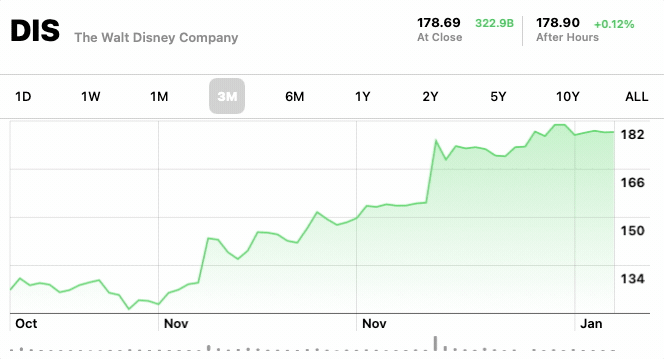Interact
4 min read
Why stock market prices move
I was asked why stock prices move so I thought I’d just collate my thoughts and post them here. Basically it comes down to a mix of politics, global affairs, business and emotions. Note: this is just how I see it, based on my limited experience.
Politics play a big part in price fluctuations of stocks but it’s not the only thing. In the last year, we’ve obviously been in a unique situation with COVID-19. There was also the US election, being seemingly more important than ever, because of the swing of power between Republican and Democrat, and them having very different values. Historically, the stock market has performed better with a spilt government in the US, a Democrat President and a Republican congress – because divided means nothing gets decided and business loves when the governments don’t interfere.
Prices of stocks went down in October just before the election because of the uncertainty, and then when it was clear Biden was going to win in November stocks started trending upwards. Particularly because Congress was looking like it was going to be divided.
Stocks obviously went down in March because of the COVID-19 pandemic. Lots of businesses closed down, some forever, but then stocks in resilient businesses, primarily online based ones, went up because that money that was sold out went straight into tech companies.
With the announcement of a vaccine in November people assumed businesses would start opening up soon, they haven’t, but stocks started to increase again on the back of that. In America, the announcement of the stimulus checks made stocks go up as well because it’s the government printing money which means they’re going to keep the economy ergo stock market afloat. Also, when they print new money it makes people more bullish on cryptocurrencies, as a hedge against inflation, because I can’t just make more Bitcoin. Hodl.
Then there’s the business side of things which is the main reason why you should buy or sell and the price should move. What is the business doing? Have they just released a financial report, are the results positive or negative? A new product announcement? A change in management team? These are all factors that investors will react to either positively or negatively, based on their own analyse, biases or general consensus.
Last month for example, Disney ($DIS) held their Investor Day 2020 – in which they focused on its streaming service, Disney+, and announced future plans and projects including an onslaught of new Star Wars material. The stock price jump 13.59% on this news.

$DIS stock price reaction to Investor Day announcements
Also, we are witnessing with Tesla ($TSLA) and Bitcoin with their skyrocketing valuations, going almost vertical due to a lack of supply. Everyone wants in and there’s not even around and no one wants to sell which is forcing the price skyward.
The last reason I’ll cover is emotions. You would think that the stock market is a place where maths and logic govern, but the reality is that we’re in a very irrational market.
With the rise of platforms like Robinhood and Freetrade, stay-at-home investors have multiplied during the pandemic and as a collective they invest their stimmies like sheep.
People see something going up so they think “Ooo, I want my money to go up too” so they invest in that with complete disregard to the core business, pure hype, which makes it go up further. Then when they see it going down they sell out which plunge it down further. There’s so much FOMO (fear of missing out) going on and it’s a little bit scary to be honest. This is the type of behaviour that contributed to Bitcoin’s Icarian downfall in 2017 – in which it soared to $20,000 only to be brought low to $3,000 within the next year.
So there you have it, a brief answer to the question ‘Why stock market prices move’. There are definitely numerous other reasons but this should cover the broad reasons as to why we see the fluctuations that we see.